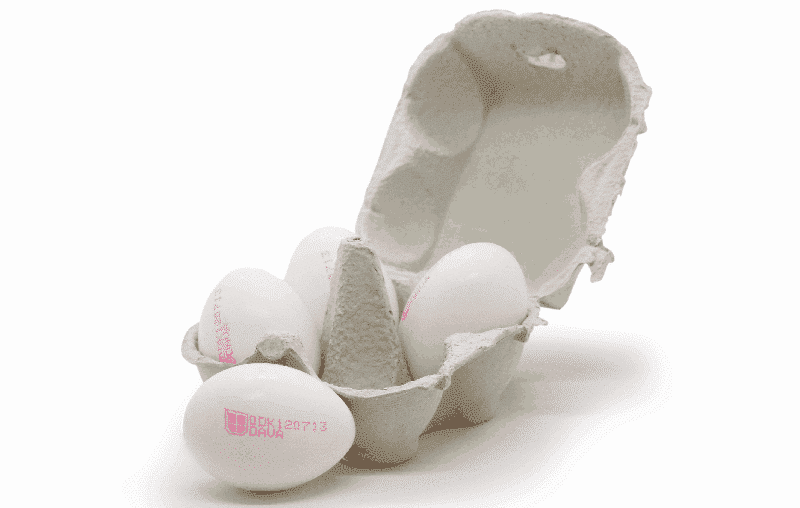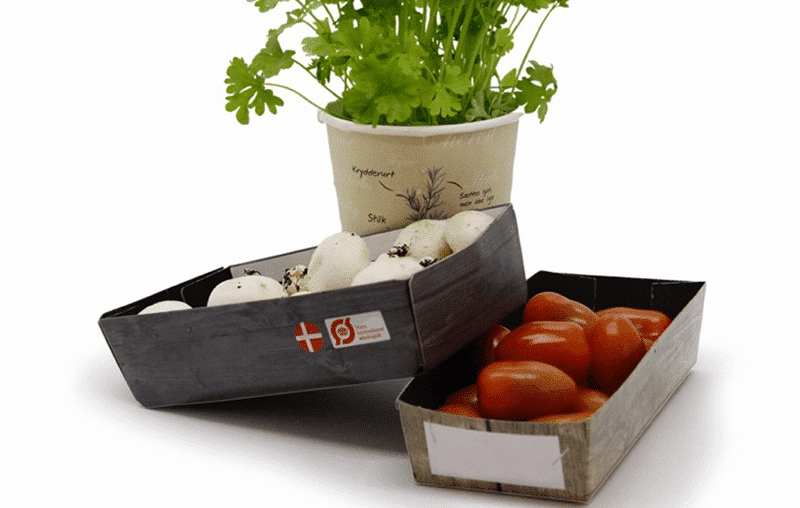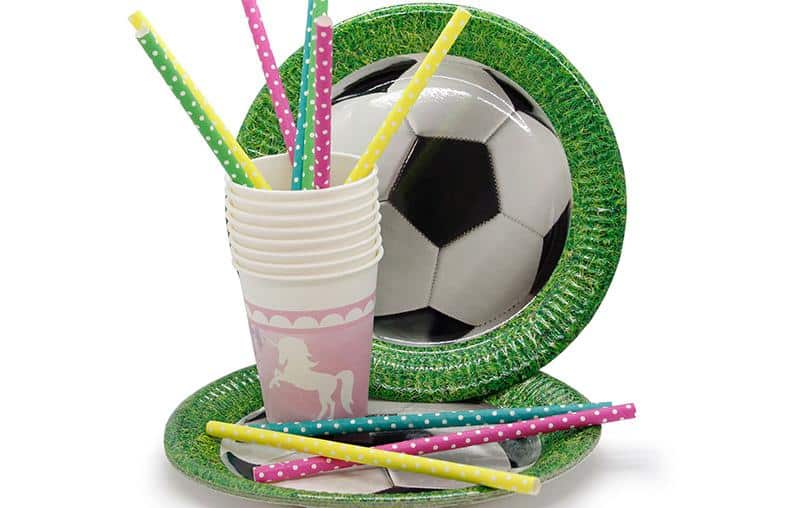PRINTING ON MATERIALS WITH DIRECT FOOD CONTACT
Resino’s Development Manager, Poul Erik Stenfelt, explains that the development of these inks for food contact is an important milestone for the company. In other words, Resino brings printing ink into the future by continuing to focus on innovative product development.
Resino operates in a niche area with special requirements and demands for the ink properties on the final product. Thus, the development of new products is often carried out in close cooperation with the customer. The inks produced by Resino are used for different purposes, and we are well aware of the fact that there is no “one size fits all” solution. Therefore, we advise you to reach us, so we can find the best solution for your business.
High safety standards for food contact materials
Food packaging is one of the most regulated areas for ink and packaging manufacturers – and rightfully so. The packaging can come into direct and indirect contact with the food consumed on a daily basis, which is why Resino strive to offer the highest quality and consumer safety standards. We provide our customers with a safe line of regulatory compliant inks for printing applications that involve both direct and indirect food contact.
These inks contain materials approved by both the American Food and Drug Administration (FDA), Swiss ordinance and the European Commission (EC). In a world where the regulations for FCM are constantly changing, we are able to deliver products that continuously meet or exceed the demands.
Working with ink on food packaging, Resino is exposed to many different requirements for the printing ink. Some customers use Resino’s printing ink for an informative purpose and other customers may use it for a decorative purpose, but they all must comply with same high safety standards.
Three methods for food contact inks
Resino started producing printing ink for edible materials to print on animal bodies. Meaning, a consumer could be eating Resino’s color while eating cracklings. Now, Resino also offers inks approved for direct and indirect food contact materials.
Resino strives to always be up to date with the latest technological developments – for all purposes. The market’s various demands call for three different methods for food contact inks.
1. Method: Printing inks for edible print
Resino has first and foremost developed inks, which allow the customer to print directly on food. The edible printing ink is 100 percent secure and easy to use, allowing Resino to be in the forefront of this specific area of printing ink.

Furthermore, Poul Erik Stenfelt says: “There are different types of colorants in food. Our focus point in the development process has been to assure a selection of colorants which can provide correct color shade and performance within the limited content allowed. The important thing is, that consumers can eat our products with absolutely no health risk.”
Water-based and solvent-based inks
Resino’s water-based REVALUX 164 and alcohol-based REFLEX 133 makes printing directly on food possible. These are the ultimate varnishes and printing inks available on the market to be used directly on food without safety or health risks. It is important for the customer to keep in mind that the REVALUX 164 series and REFLEX 133 series consist of different types of colorants, varnishes, and binders.
The REFLEX 133 series inks are solvent-based. The REVALUX 164 series inks are water-based.
Compliance
For both our water-based and solvent-based ink variant, the ink components in the dried print are all food grade additives under the EU, Swiss and US legislations. These inks contain only ingredients which are suitable as food additives according to FDA§ 175.300 & Regulations (EC) 1333/2008, 1334/2008, 2232/96, 1601/91, 110/2008 and directive 2000/13/EC. All colors are made in accordance with Good Manufacturing Practice and follow EU rules: (EC) 2023/2006, EuPiA, ISO 9001 and ISO 22000.
Resino’s printing inks for edible materials are approved by Eurofins, DK and J.S.Hamilton, Pl, which are independent institutes accredited for food packing approvals. They act as a third party, investigating and validating Resino’s recipes for printing inks designed for print on edible material. The quality of the products and the approval of the types of ink for printing on food apply to most markets across national borders, however, it is always necessary to enquire about compliance with local regulations.
Applications of ink
The REVALUX 164 series and the REFLEX 133 series can be adapted for application both manually (eg. with stamp) but also by flexo printing, gravure printing and lastly with InkJet.
The various techniques allow Resino’s customers to print on anything from pharmaceutical products to the food that we buy at the supermarket.
This solution offers an ink which is built from food additive components, resulting in moderate resistance properties and limited color shade availability, compared to conventional inks. Therefore, it is sometimes relevant for a customer to consider an alternative method.
2. method: Printing inks for direct food contact
Resino offers inks suitable for printing on materials, where the print is directly exposed to food.
Water-based ink for direct food contact
Resino’s REVALUX 156-3 series is a water-based printing ink varnish specially developed to be used for foodstuff applications on coated and uncoated carton/paper as well as most packaging films. The REFLEX 146-01 and RESTINE 185-01 series are the specially designed alcohol-based printing inks for printing on flexible packaging.
The inks have excellent printing properties and contain only raw materials suitable for direct food contact. These inks are used for printing on packaging films intended for direct food contact as well as on medical articles.

Applications of ink
Based on various tests the inks described above can be used for long term contact with all types of foodstuffs for up to 40°C – as well as 70°C for 2 hours or 100°C for 15 minutes.
This allows the inks to be used on the inside of vegetable packages and on paper plates /cups and many other materials intended for direct contact with food. These inks can meet traditional end use resistance properties, however, the pigments suitable for these applications results have limited color shade availability. If a “normal” range of color shades is required, another method may be necessary.
Compliance
The ingredients used are suitable for direct food contact according to FDA§ 175.300 & Food contact: Regulation (EC) 1935/2004 and products tested complies with the requirements in Commission Regulation (EU) No. 10/2011 with amendments up to an including Commission Regulation (EU) 2019/1338 on plastic materials and articles intended to come in contact with food. Manufacturing follows Good Manufacturing Practice according to regulation (EC) 2023/2006, EuPiA, ISO 9001 and ISO 22000.
3. method: Printing inks with a protective coating for direct food contact
Resino offers a method where the print is protected by a clear protective coating approved for direct food contact materials.
This solution offers specific inks made with clean pigments, but not necessarily approved for direct food contact – hence the need to protect the printed surface with an overprint varnish.
The prints meet traditional end use resistance properties and have regular color shades available.
Water-based and solvent-based ink
When you print with an overprint varnish, it is possible for the customer to choose a water-based ink and a solvent-based ink. With the water-based inks you need the REVALUX 156-20 series inks, protected by the REVALUX 156-3 overprint varnish. If you choose to work with the solvent based inks, you will need the alcohol-based REFLEX 146-20 inks, protected by with the RESTINE 185-01 series overprint varnish and acetate based 181-01 series inks, protected by 185-01 overprint varnish.
Compliance
The protective coating and ink ingredients (except for the pigments) are suitable for direct food contact according to FDA§ 175.300 & Food contact: Regulation (EC) 1935/2004. Simultaneously, the manufacturing follows the correct and optimal manufacturing practices according to: Regulation (EC) 2023/2006, EuPiA, ISO 9001 and ISO 22000.
Get in touch with us today

Do you need inks approved for direct contact with food? If you need more information or have any questions about our food contact inks and varnishes, we welcome you to contact us at resino@resino-inks.com or +45 4497 3488.
We highly value a close partnership, and we are happy to assist you in the entire process.

